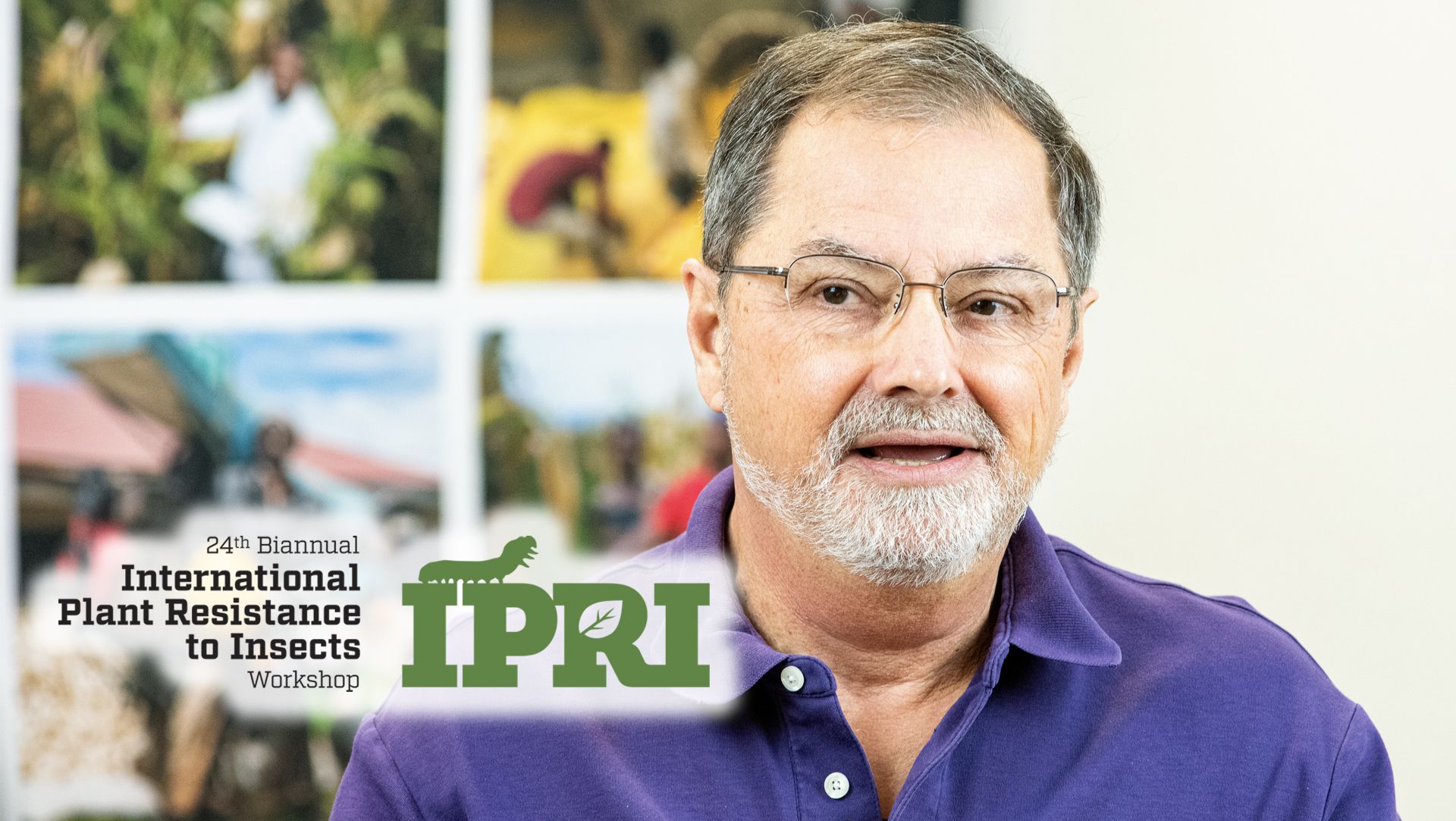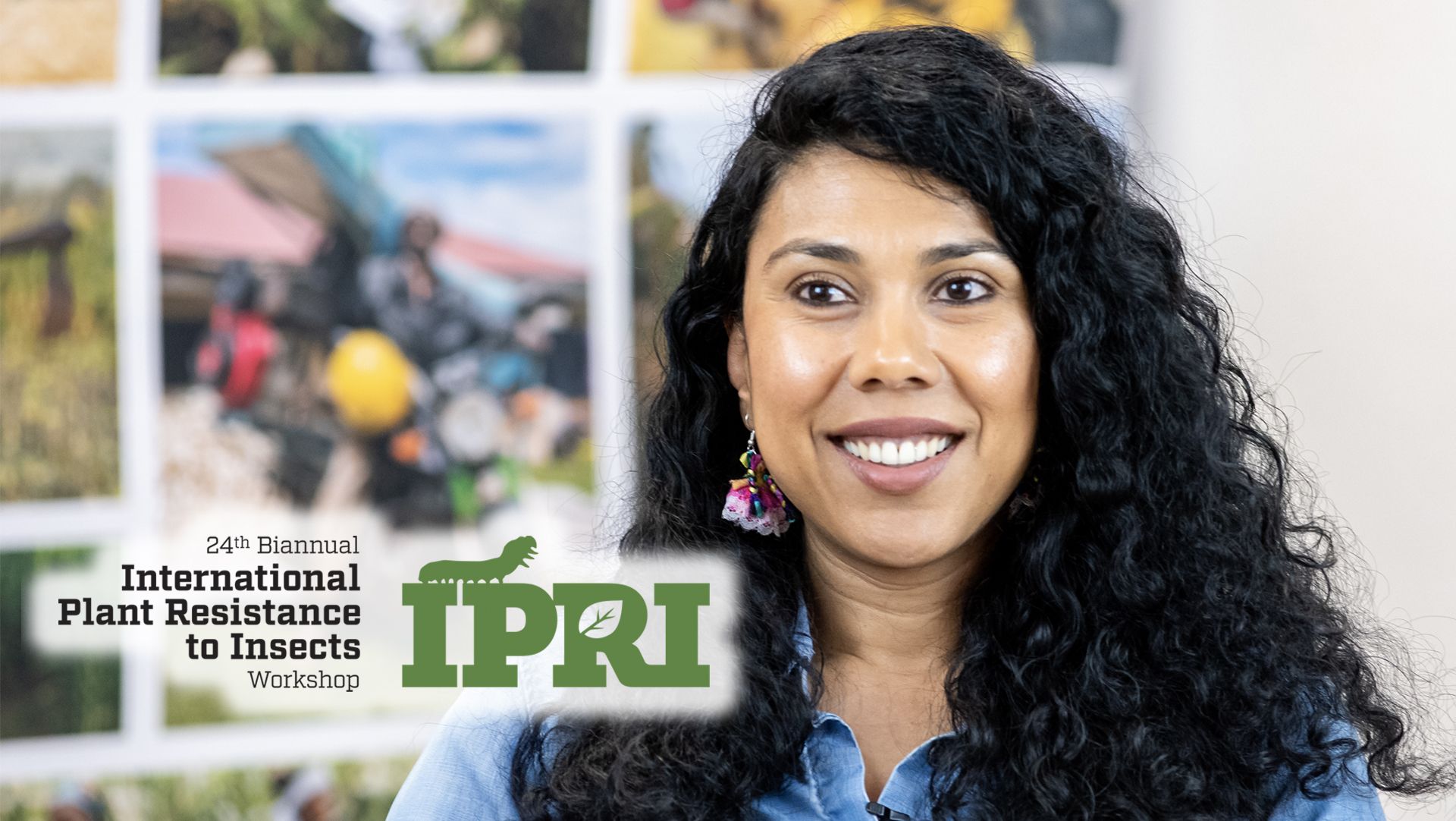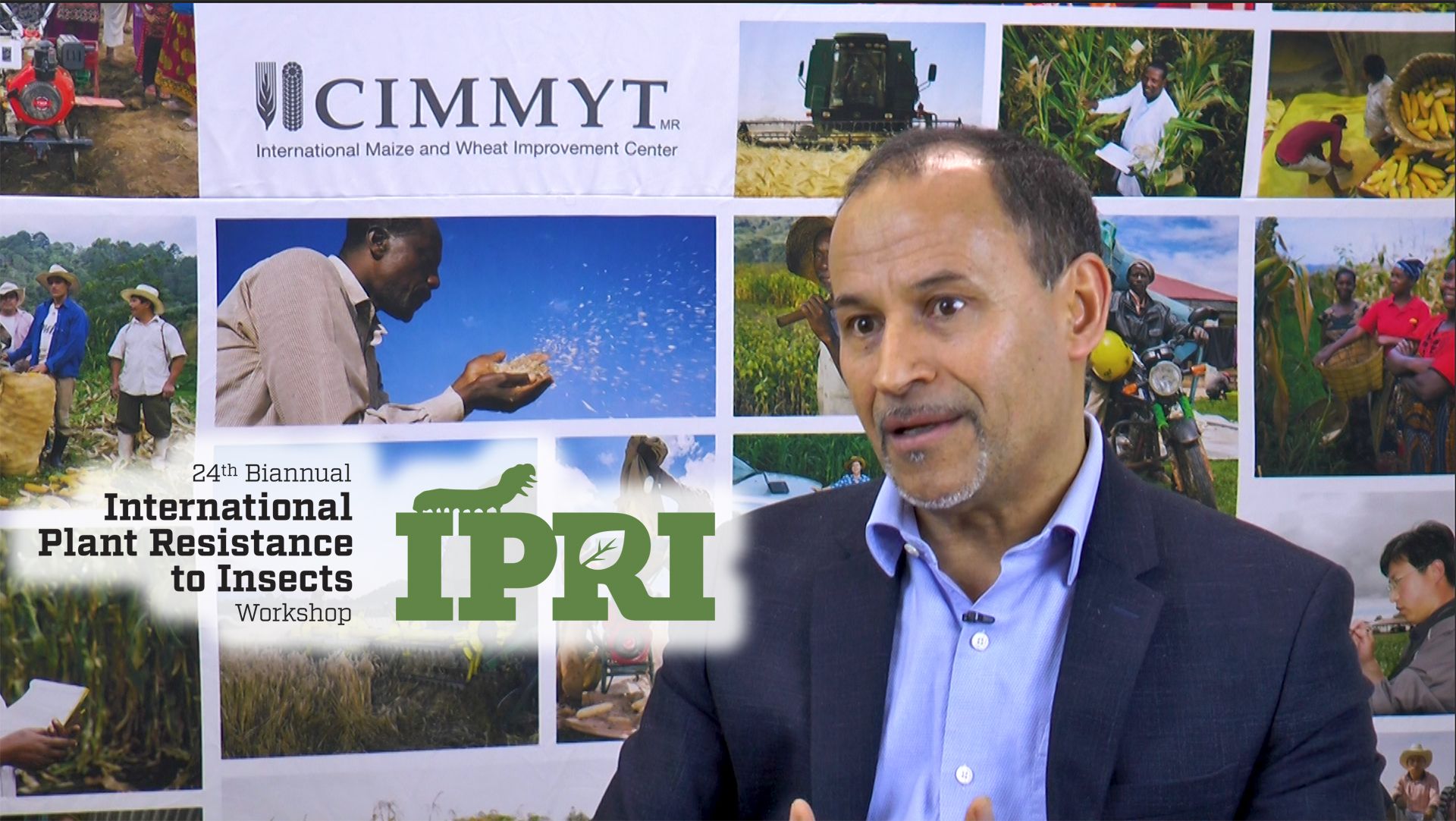The value of research on plant resistance to insects
Crop pest outbreaks are a serious threat to food security worldwide. Swarms of locusts continue to form in the Horn of Africa, threatening food security and farmer livelihoods ahead of a new cropping season. The devastating fall armyworm continues cause extensive damage in Africa and South Asia.
With almost 40% of food crops lost annually due to pests and diseases, plants resistance to insects is more important than ever. Last month, a group of wheat breeders and entomologists came together for the 24th Biannual International Plant Resistance to Insects (IPRI) Workshop, held at the International Maize and Wheat Improvement Center (CIMMYT) global headquarters outside Mexico City.
Watch Mike Smith, entomologist and distinguished professor emeritus at Kansas State University explain the importance of working with economists to document the value of plant insect resistance research, and why communication is crucial for raising awareness of the threat of crop pests and insect resistance solutions.


